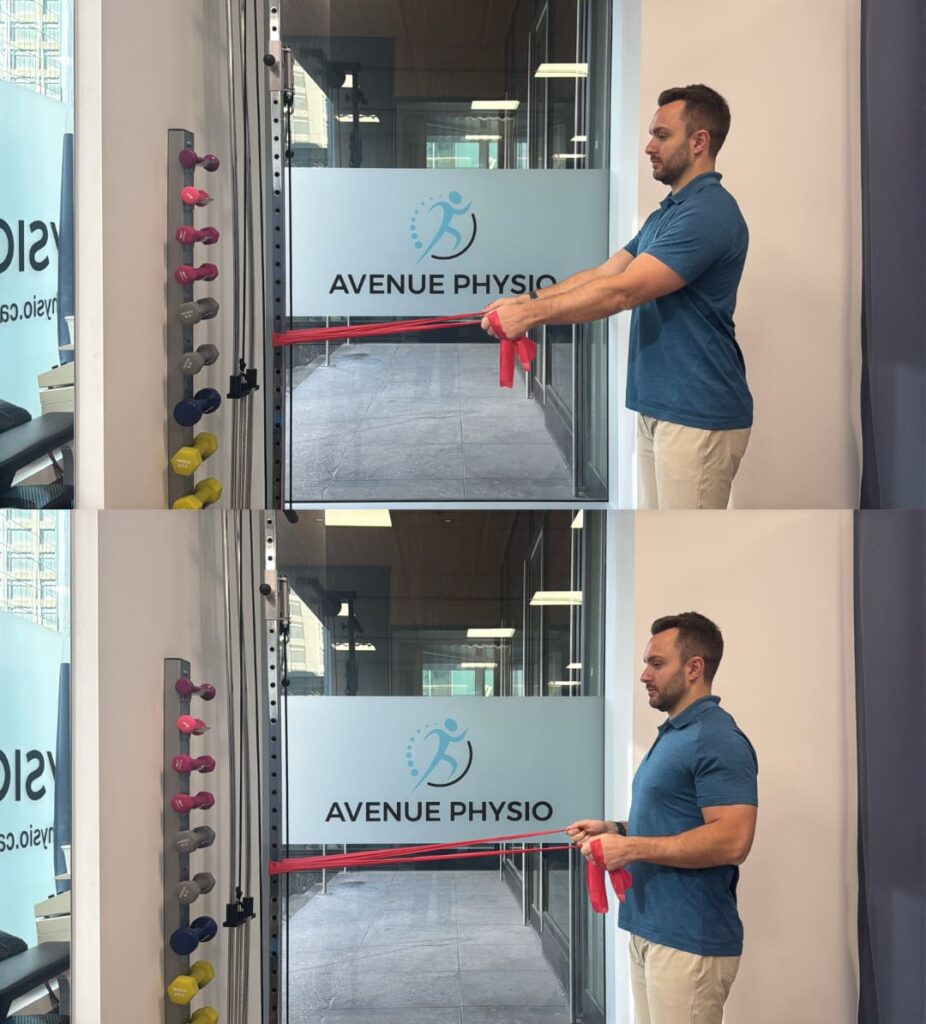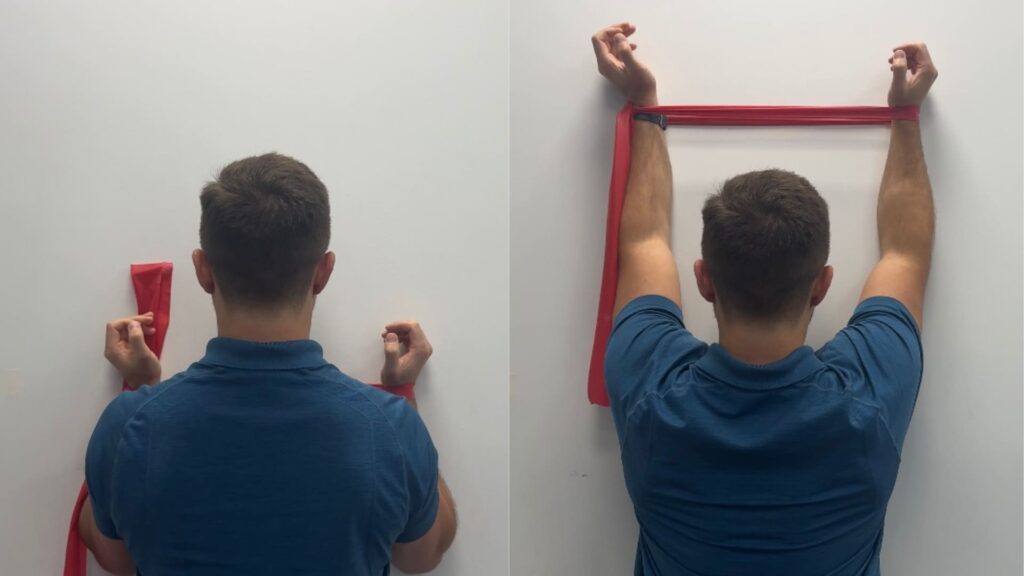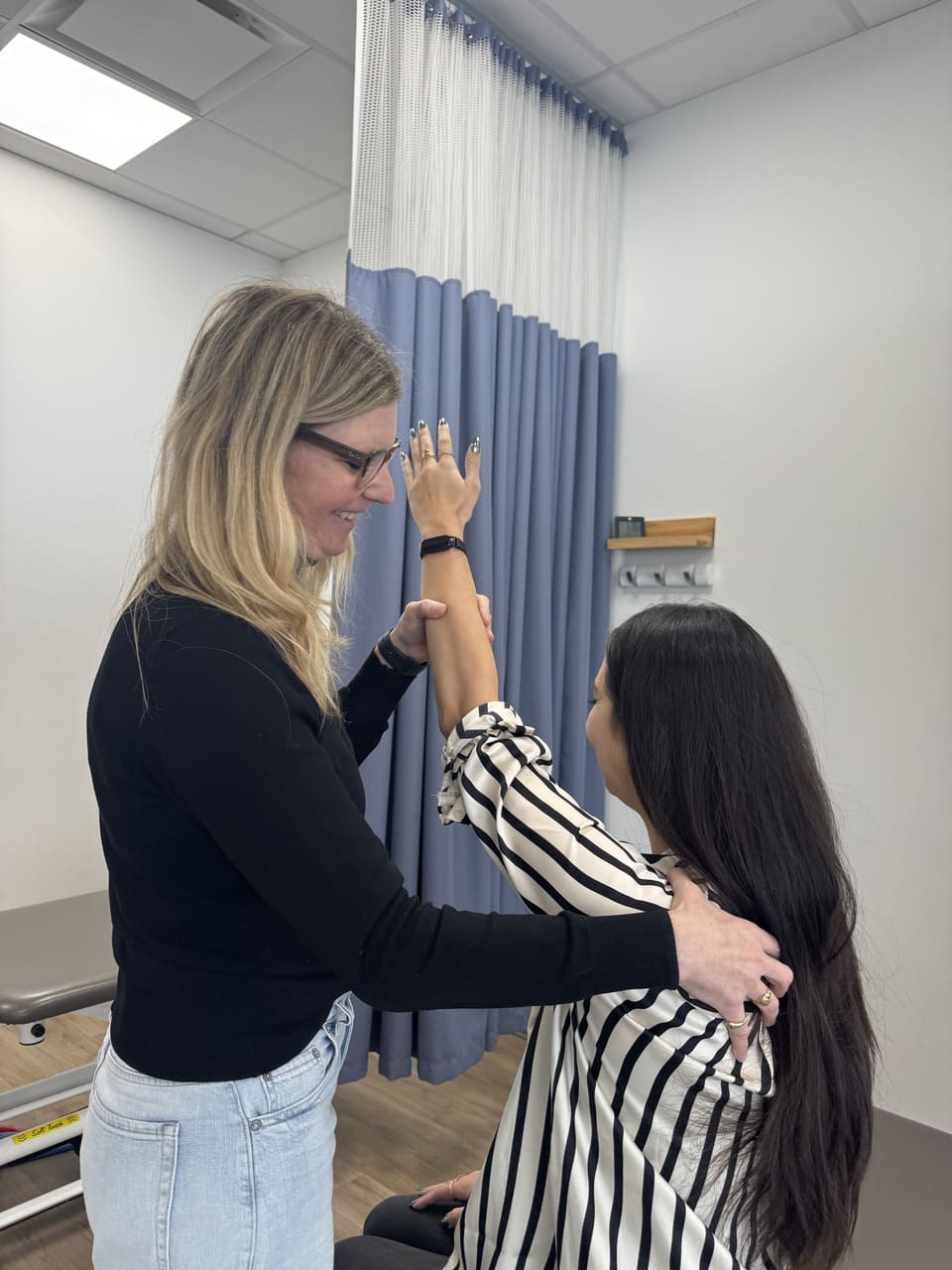
Shoulder Pain at Night: What It Means and How Physiotherapy Can Help
Shoulder pain can be frustrating at the best of times—but when it keeps you up at night, it becomes more than just a nuisance. Whether you’re struggling to find a comfortable sleeping position, waking up in pain, or noticing stiffness and discomfort that lingers into the morning, you’re not alone. Night-time shoulder pain is a common complaint, and thankfully, physiotherapy offers effective ways to address it.
In this article, we’ll cover:
- Common causes of shoulder pain
- Typical shoulder injuries that contribute to poor sleep
- Why shoulder pain can worsen at night
- How physiotherapy can reduce pain, improve sleep, and speed recovery
- Practical tips for sleeping better
- Frequently asked questions about shoulder pain
First, A Quick Look at Shoulder Anatomy
Your shoulder is one of the most mobile joints in the human body — but also one of the most complex. It’s made up of:
- The humerus (upper arm bone)
- The scapula (shoulder blade)
- The clavicle (collarbone)
These bones are held together and moved by a network of muscles, ligaments, and tendons, most notably the rotator cuff — a group of four small muscles that stabilize the joint during movement.
Because it relies so heavily on muscle control and soft tissue balance, the shoulder is vulnerable to overuse, postural strain, and injury — all of which can lead to pain that worsens at night.
Common Causes of Shoulder Pain at Night
Not all shoulder pain is caused by one thing. It often develops gradually and can be triggered by a combination of factors:
🔹 Rotator Cuff Issues
Injury to the rotator cuff — whether inflammation, tendinopathy, or tears — is one of the leading causes of shoulder pain.
🔹 Subacromial Pain Syndrome (SAPS)
This broad term covers irritation of the soft tissues beneath the bony arch of the shoulder (subacromial space). Pain is often triggered during overhead activity and worsens at night due to inflammation and lack of movement.
🔹 Frozen Shoulder (Adhesive Capsulitis)
This condition causes the shoulder capsule to become thickened and tight, leading to a significant reduction in movement. It typically develops slowly, with the early stage often marked by severe night pain — even before major stiffness sets in.
🔹 Shoulder Osteoarthritis
As we age, the cartilage in the shoulder joint can wear down. This can cause aching and stiffness, especially after periods of inactivity — such as when you’re lying still in bed.
🔹 Bursitis
Inflammation of the bursa — fluid-filled sacs that cushion your joints — can cause sharp, stabbing pain when you move the shoulder or lie on it.
🔹 Referred Pain from the Neck or Upper Back
Pain felt in the shoulder doesn’t always originate there. Sometimes it’s referred from the cervical spine or upper thoracic region, particularly if nerves are involved.

Why Is Shoulder Pain Worse at Night?
If your shoulder feels okay during the day but flares up at night, you might be wondering — why now? There are several reasons this can happen:
1. Inactivity and Stiffness
Throughout the day, natural movement helps keep joints lubricated and muscles warm. But when you’re lying down for hours, fluid can stagnate and tissues can become stiff.
2. Sleep Position
Lying directly on the sore shoulder can compress sensitive tissues. Even lying on your “good” side can pull on the painful shoulder if it’s unsupported. If you sleep on your stomach, that can also strain the shoulder due to awkward positioning.
3. Inflammatory Rhythms
Our body’s inflammation control systems slow down at night. Levels of natural anti-inflammatory hormones like cortisol dip in the evening, which may lead to increased swelling and discomfort.
4. Increased Pain Perception
During the day, you’re moving, working, talking — busy. At night, your brain has fewer distractions and tunes in more to pain signals, making discomfort feel more intense.
How Physiotherapy Helps Shoulder Pain at Night
Physiotherapy is an effective way to address night-time shoulder pain. Here’s how it can help:
✅ 1. Accurate Diagnosis
Through a comprehensive subjective and physical assessment, your physiotherapist can help identify the cause of your pain, and where it is most likely coming from.
✅ 2. Hands-On Treatment
Manual therapy techniques can help loosen stiff joints, reduce muscle tension, and improve blood flow. Some practitioners may also use dry needling, taping, or shockwave depending on your condition.
✅ 3. Exercise Therapy
Tailored exercises are a key component of rehabilitation. These may include:
- Pendulum exercises or passive movements for frozen shoulder
- Strengthening exercises for subacromial pain syndrome or rotator cuff related pain
- Scapular control and postural drills to support long-term shoulder health
Your physiotherapist will gradually progress your program based on pain, strength, mobility, and overall function.

✅ 4. Postural and Ergonomic Advice
Poor posture during the day can be a contributing factor to shoulder overload and pain. Your physiotherapist can identify slouched or compensatory movement patterns and show you how to move and sit more efficiently.
✅ 5. Sleep Position Guidance
Many patients find quick relief just from adjusting how they sleep. Common strategies include:
- Sleeping on your back with a pillow under your elbow
- Hugging a pillow when lying on your opposite side
- Avoiding overhead arm positions or sleeping with your arm under your head
Tips for Sleeping Better with Shoulder Pain
- Avoid sleeping on the sore shoulder. Use pillows to gently prop the arm and keep it supported.
- Try using heat before bed to relax muscles and improve blood flow (unless inflammation is high — in which case, try cold).
- Do gentle shoulder movements or stretches in the evening to prevent stiffness overnight.
- Stick to a consistent sleep schedule, as poor-quality sleep can amplify pain perception.
Frequently Asked Questions
1. Should I rest my shoulder completely?
No — total rest can actually make things worse. You should avoid aggravating movements but keep the shoulder moving gently within a pain-free range.
2. Can I treat shoulder pain at home?
Mild cases may respond to home care like posture adjustments, basic stretching, and changing sleep position. But if pain persists more than a week or worsens at night, get it assessed.
3. Do I need a scan?
Not always. Physiotherapists are trained to assess shoulder injuries clinically. Imaging may be recommended if you’re not improving with conservative treatment or if there are signs of more complex issues.
4. How long does recovery take?
It depends on the cause. Minor issues may resolve within a few weeks. Conditions like frozen shoulder or rotator cuff tears may take several months, but physiotherapy can help reduce recovery time.

Final Thoughts
Shoulder pain at night isn’t just a minor inconvenience — it can disrupt your sleep, your recovery, and your quality of life. But it’s also highly treatable.
Whether your pain is due to a rotator cuff issue, postural stress, or a stiff joint, physiotherapy offers strategies to help reduce pain, restore mobility, and get you sleeping comfortably again.
Still struggling with shoulder pain at night?
Book an appointment with a physiotherapist and take the first step toward feeling better — day and night.

